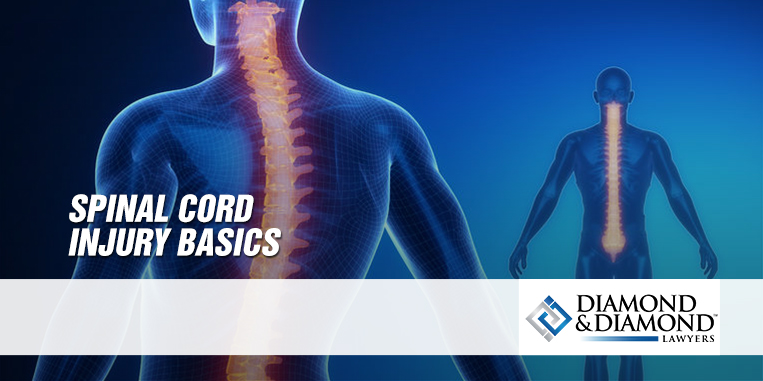Your spine and spinal cord affect virtually every aspect of your life. A severe injury to your spinal cord may affect your body in ways that you may not have been able to predict. Serious injuries can lead to an inability to use portions of your body at all.
Traumatic injuries, including damages from motor vehicle accidents, are the most common cause of spinal cord injuries. Other causes may include falls, sports accidents, and similar incidents. Some diseases and congenital disorders can also lead to spinal cord problems.
If you or a loved one has suffered a spinal cord injury, understanding the basics of the damage can help you get a handle on what is happening to your body and why.
Your Spinal Cord Explained
Your spine has 33 vertebrae. These vertebrae are small bones that are held together by ligaments on either side. There is cartilage between each vertebra to decrease pressure and allow the bones to move smoothly. This design enables you to bend and move up and down and side to side. It also prevents the bones from grinding on one another, which would decrease movement and cause pain.
Your spinal cord is within this web of vertebrae. It is surrounded by bones, cartilage, and ligaments. The “cord” is really a bundle of nerves that connects your brain to the rest of your body. The spine protects the spinal cord as your spinal cord is vital to your body’s normal function.
The spinal cord itself is about 52.5 centimeters in length. It is the primary source of communication between your brain and various parts of your body. Your spinal cord affects things like:
- Proper functioning of vital organs
- Muscle movement
- Observing feelings in your body
- Regulating digestion
- Controlling urination
- Sensing temperature, pressure, and pain
- Monitoring and adjusting your heart rate and the dilation or contraction of blood vessels
These items are often absolutely vital to your continued health. For example, if the spinal cord was no longer able to regulate your heart rate, you may die if you cannot get to a hospital in time.
Spinal Cord Injuries
Because your spinal cord is your body’s main method of communication with the rest of your body, when it is injured, it can have a significant impact on your daily life. How a spinal cord injury affects you will depend on which portion is damaged.
Your injury could range from losing feeling in a toe to being completely unable to feel or move your entire lower body. As an example, the lower the damage to the spinal cord, the less likely that your arms will be affected. A few severe spinal cord injuries include:
- Paraplegia: You have lost part of your sensation and ability to move in your legs or trunk. This type of injury usually occurs to the lower spinal cord.
- Tetraplegia: This injury is also known as quadriplegia. It occurs when you can no longer feel or move all four limbs and your trunk, either partially or wholly. It generally affects the entire body from the neck down.
Severe damage to the spinal cord may not have a cure. Nonetheless, some regeneration and repair are possible, but it is more effective for minor injuries and damage.
Call an Ontario Spinal Cord Injury Lawyer for a Free Case Evaluation
If your spinal cord injury was the result of an accident, you might have a legal claim that can help you with your damages from the incident. Every situation is different. Talk to the professionals at Diamond & Diamond to obtain an evaluation of your case. We can let you know if pursuing legal action is the right option for you. Call 1-800-567-HURT to schedule an appointment. Remember—it will not cost you anything to set up the meeting, and we do not get paid unless you do!
